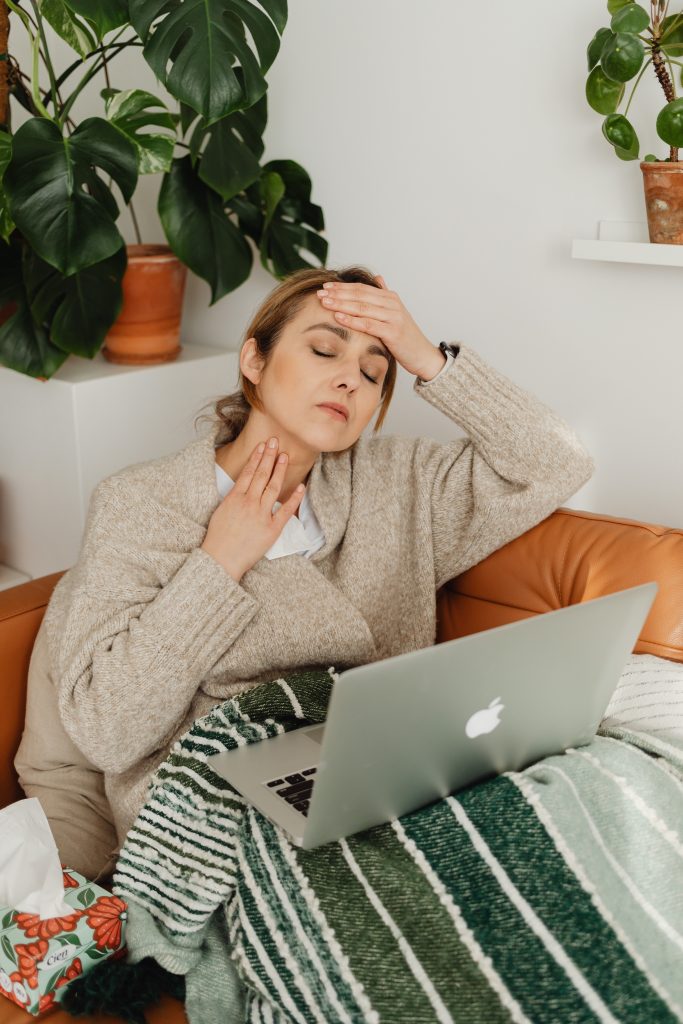We all know the costs and frustrations associated with absenteeism. Lost productivity. Unfulfilled orders. Overworked colleagues picking up the slack. And presenteeism — showing up for work when you’re ill or not functioning at full capacity — is an even greater problem. If you run a small or medium-sized business, chances are that both have already eaten into your profits this year. What’s worse, both ‘teeisms are on the rise.
Still, it’s not all doom and gloom, because although these are complex issues, there are some steps you can take to minimise rates within your organisation.
Presenteeism vs Absenteeism
Perhaps at this point, you’re doing a double take about presenteeism.
Showing up for work when you’re not quite feeling up to it — surely, that’s a good thing? We want our employees to soldier on, to show some grit and loyalty and determination. After all, that’s what most business leaders do themselves. And from a business point of view, isn’t it better if an employee is in work doing something productive.?
In other words, isn’t it better to have presenteeism than absenteeism?
Actually, not really. There are at least four main problems with this view:
- Presenteeism is a risk factor for later absenteeism. In other words, employees who struggle into work today tend to be off work tomorrow. In particular, the mental health issues associated with presenteeism are among the top ten causes of long-term sickness absence.
- Presenteeism leads to both exhaustion and depersonalisation (a disconnectedness from work), neither of which is great for productivity.
- The presenteeism associated with mental health issues is around fourteen times as common as absenteeism and is seen in 86% of organisations.
- Presenteeism is a greater cost to businesses than absenteeism. For example, mental health issues associated with presenteeism cost the economy twice what absenteeism does.
It’s true that some employees take time off at the drop of a hat. But looking at the big picture, this problem is dwarfed by the opposite: far more of our employees are substituting presenteeism for absenteeism. And that sets them up for burn-out, exhaustion, and long-term health problems.
Occupational research gurus Deloitte estimate that presenteeism costs UK employers £27bn to £29bn a year. For an average employee, that’s a productivity loss equivalent to a jaw-dropping 31.6 days. That’s in addition to an average of 6.6 days of absenteeism per employee. Deloitte also report that even before the pandemic, presenteeism was rising steeply.
Yes, the ‘teeisms can be tackled
So, the crucial question: if you’re a business and team leader, what can you do about the rising ‘teeism tide? How do you minimise the effects on your organisation?
Obviously, many of the factors influencing presenteeism and absenteeism are outside of your control. There’s nothing you can do about pandemics, toxically competitive industry sectors, or tech trends adding to mental health issues (stand up, heavy use of social media!).
However, you’re not helpless either. Firstly, the culture within an office — and the wider organisation — has a major influence on both ‘teeisms. Employees take their cues about what’s appropriate behaviour from those around them. With strong leadership, attitudes can be changed —experts suggest that managers can start by understanding their own mindsets regarding presenteeism in particular, and learning about its root causes.
What’s arguably even more powerful is an organisation’s wider approach to health and wellbeing.
Why health and wellbeing matter
Any organisation that’s serious about reducing absenteeism and presenteeism needs to have an effective, proactive, health and wellbeing policy. Because, as might be expected, there are close connections between the ‘teeisms and overall mental and physical health.
A growing body of research confirms the link. For example, overall health risks correlate with both presenteeism and absenteeism, with diabetes in particular associated with levels of absence. Research by the RAND corporation shows that poor sleep is associated with presenteeism. Meanwhile, Chinese researchers found links between presenteeism and poor nutritional choices and insufficient physical activity. In addition, multiple strands of evidence suggest absenteeism is correlated with poor diet.
All of this suggests that any successful approach to addressing ’teeisms should take a holistic approach to health and wellbeing — one which considers both physical and psychological factors.
Can workplace interventions help?
So, improving health and wellbeing can have a positive impact on absence and presenteeism. But given that the average employee spends two-thirds of their time outside of work, it’s fair to ask whether work-based interventions can have much impact.
The evidence is that they can, for both absenteeism and presenteeism.
Deloitte’s comprehensive research analysed which types of intervention produced the best ROI. They found three overall trends.
“Interventions that achieve higher returns tend to have the following characteristics:
- They offer a large‑scale culture change, or organisation‑wide initiatives supporting large numbers of employees.
- They are focused on prevention or designed to build employee resilience.
- They use technology or diagnostics to tailor support for those most at risk.”
As an evidence-driven wellbeing consultancy, this confirms what we know from our day-to-day practice.
In particular, we’ve found that the use of our diagnostics is a potent, unobtrusive way of obtaining the data needed to support individuals. They are the first step in creating a physical and mental resilience within individuals that serves them well in working and home life.
The two ‘teeisms certainly aren’t going away anytime soon. But sensible adjustments to office culture, and a really good health and wellbeing strategy, are promising ways of tackling the problem. That should be music to any hard-pressed leader’s ears.
ART Health Solutions is a wellbeing consultancy, providing effective, science-based wellbeing recommendations. Our bespoke solutions are generated by gathering data directly from the organisation and its employees. Having proven our methods working with large, multinational corporations, we’re excited to bring our expertise to small and medium-size UK businesses.
To learn how we can benefit your company, please contact our friendly team.

